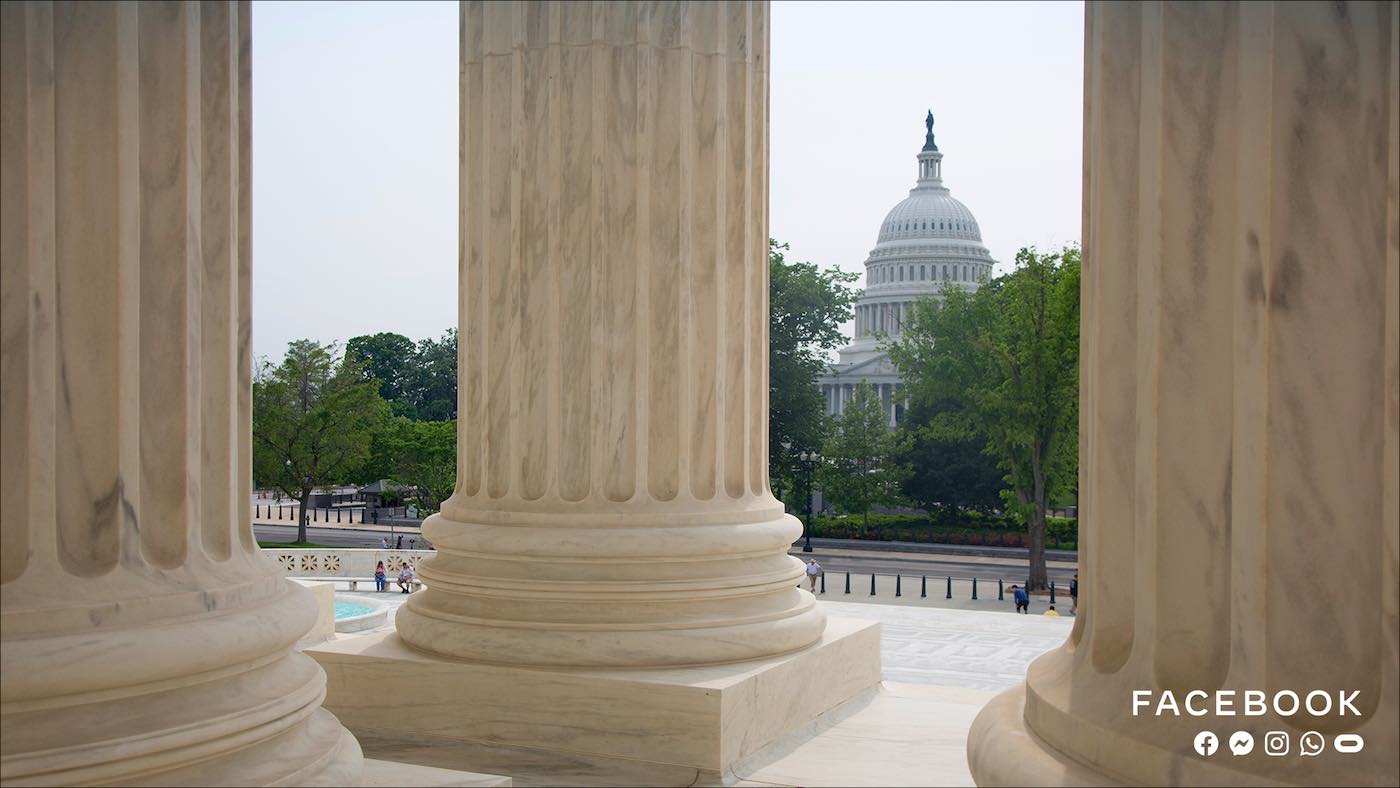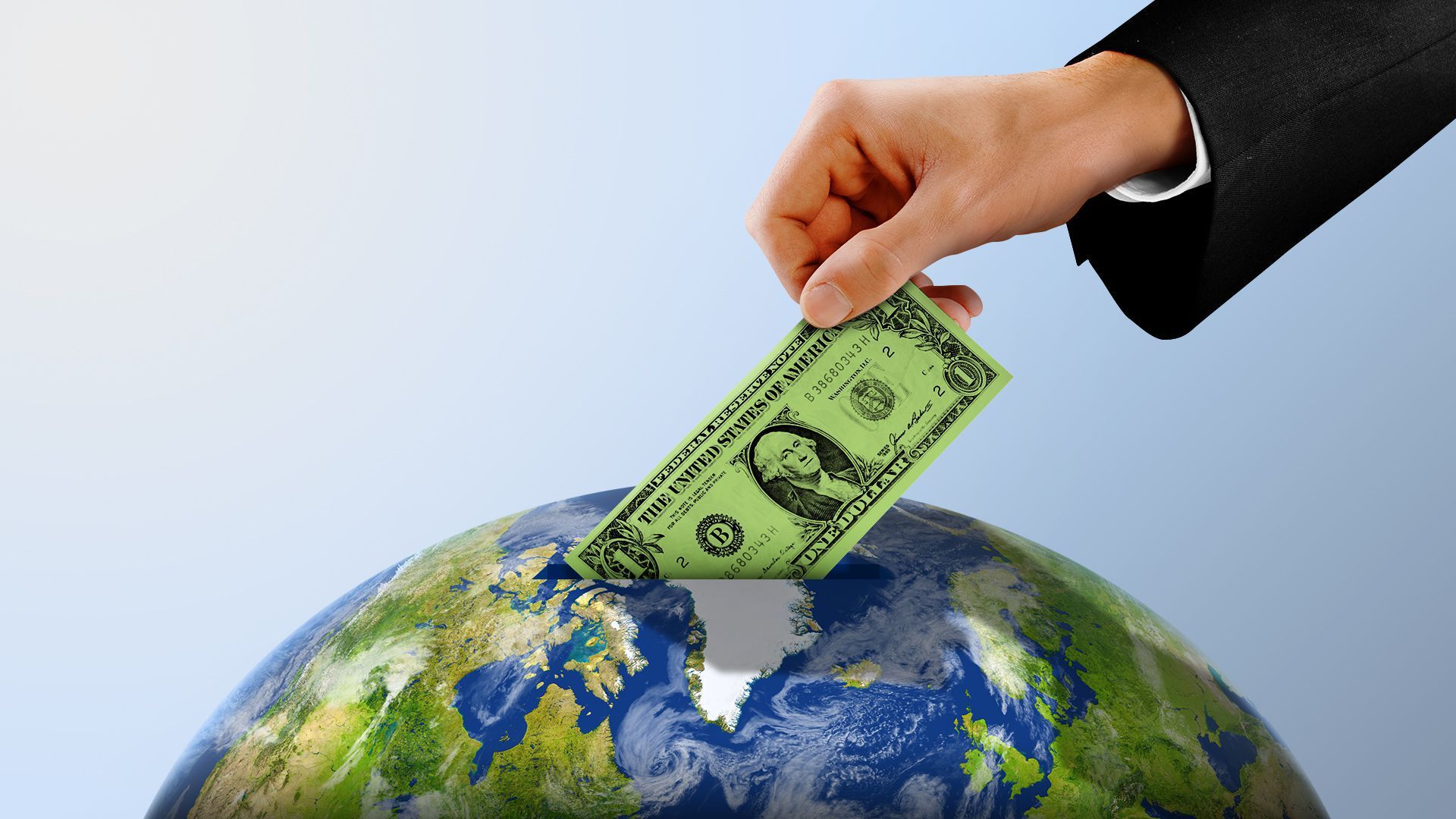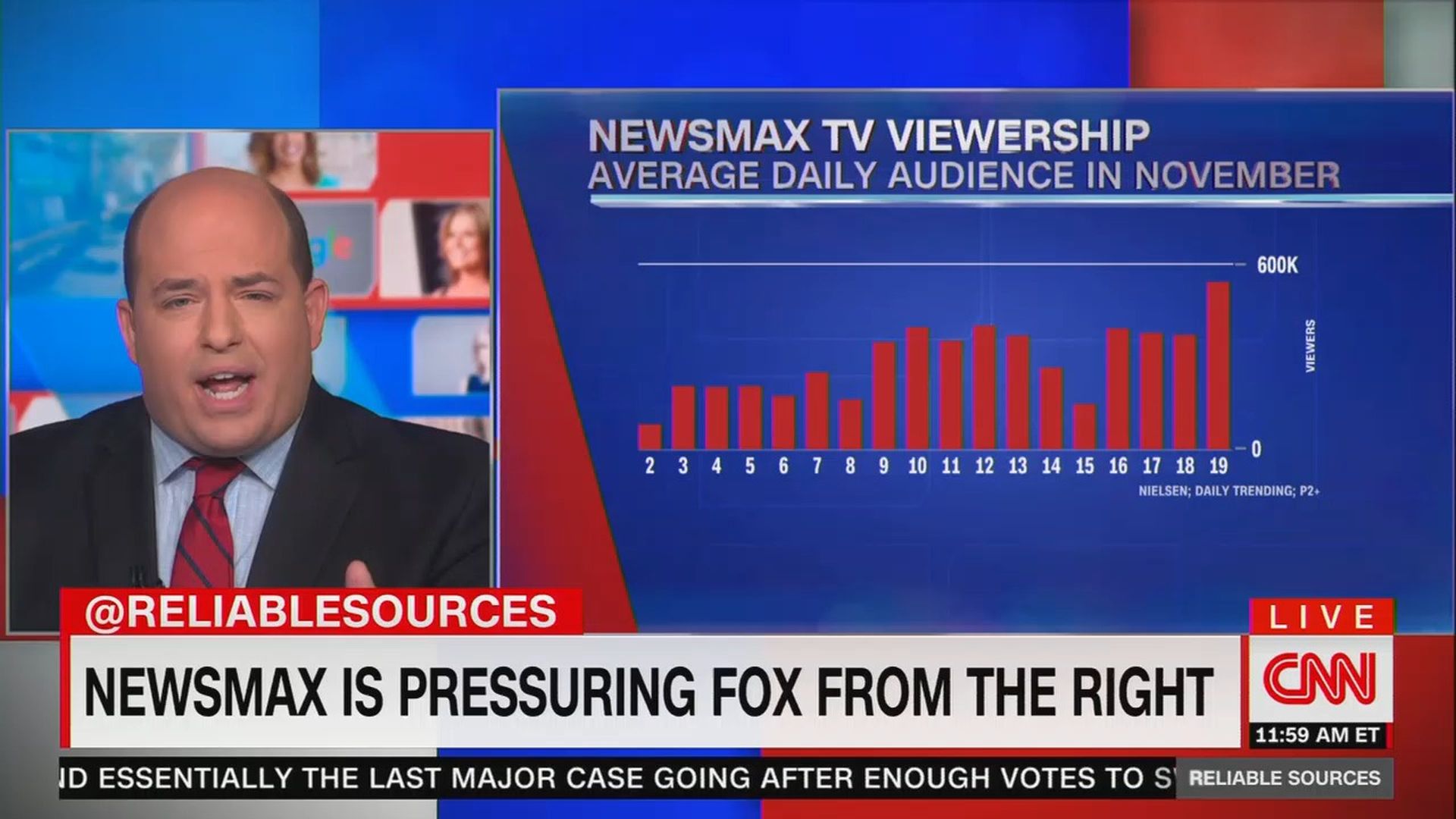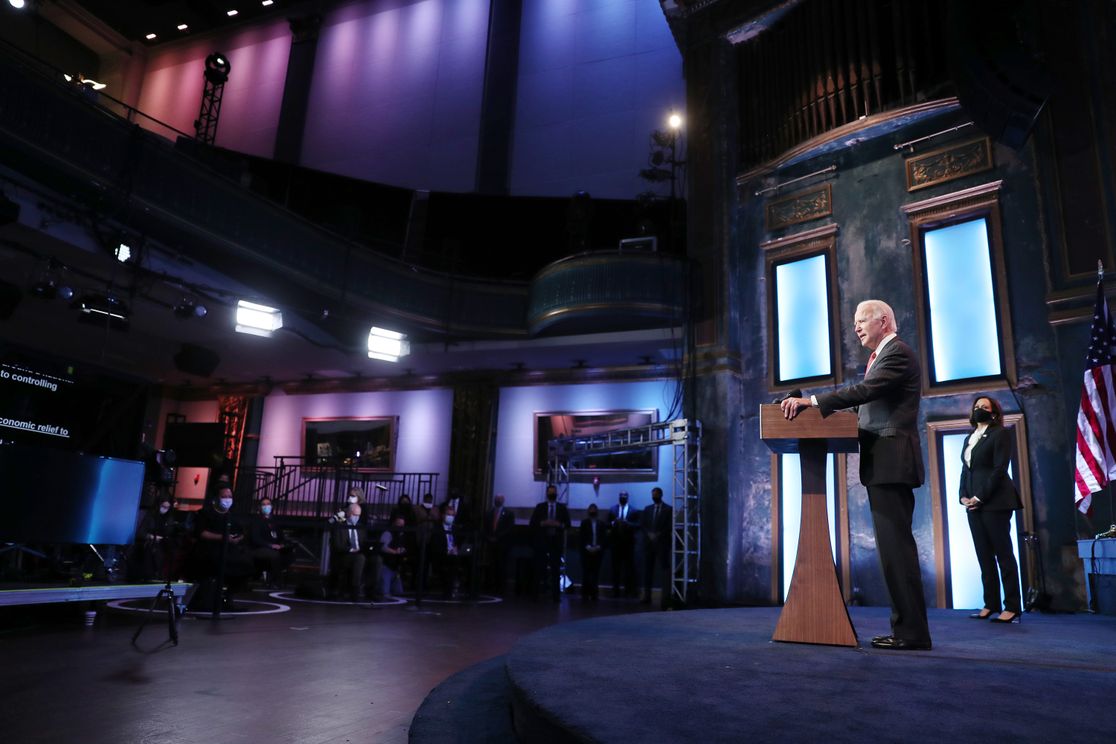| |
| |
| |
| Presented By Facebook |
| |
| Axios AM |
| By Mike Allen ·Nov 23, 2020 |
| ☕ Happy Monday! Today's Smart Brevity™ count: 1,485 words ... 5½ minutes. 🎬Tonight on "Axios on HBO" (11 p.m. ET/PT): I fly to Wichita for Charles Koch's first TV interview in four years (Clip) ... Moderna chief medical officer Tal Zaks talks to Dan Primack (Clip) ... Southwest Airlines CEO Gary Kelly tells Felix Salmon he should fly (Clip) ... Rep. Tony Cárdenas (D-Calif.) sits down with Alexi McCammond. |
| |
| |
| 1 big thing: It's over |
| President Trump watches coverage in the lower press office after speaking Friday on prescription drug prices. Photo: Jabin Botsford/The Washington Post via Getty Images That's what Blackstone chairman, CEO and co-founder Steve Schwarzman, one of President Trump's most loyal allies, and other top Republicans are signaling to the defeated president, 16 days after Joe Biden clinched the win. - Why it matters: It's all theatrics now. Even if Trump doesn't move on fast, you can. It is safe to ignore the fearful Republicans who insist the process is legit and plausible, because they tell us privately it is not.
Schwarzman said in a statement to Axios' Hans Nichols that Biden won and it's time to move on. - "I'm a fan of good process," Schwarzman said. "In my comments three days after the election, I was trying to be a voice of reason and express why it's in the national interest to have all Americans believe the election is being resolved correctly. But the outcome is very certain today, and the country should move on."
- "I supported President Trump and the strong economic path he built. Like many in the business community, I am ready to help President-elect Biden and his team as they confront the significant challenges of rebuilding our post-COVID economy."
Schwarzman's signal is more meaningful in Trumpworld than any of the messages so far from corporate America, Jonathan Swan reports. - Trump's top aides have undisguised contempt for some establishment business groups. But not Schwarzman. He has been a close confidant of Trump's throughout his presidency.
The legal insanity: For more than 24 hours — until it became too much even for Rudy Giuliani to tolerate — the publicly-stated position of President Trump's legal team was that the reason Trump lost Georgia is because Gov. Brian Kemp (R) has been bribed by a Venezuelan front company in cahoots with the CIA to throw elections to Communists. - More than that, in the telling by now-former Trump legal adviser Sidney Powell (ditched in a statement by the campaign last night), these dastardly Communists have manipulated American voting machines to switch millions of votes from Trump to Joe Biden.
Yes, that's correct. You didn't read that wrong. We are not pranking you. - This is literally what a member of Trump's legal team was arguing. Watch this Newsmax clip and this press conference appearance from Powell.
- The dangerous reality is that there is a large audience for this conspiracy theory. Far-right commentators attacked Fox' News' Tucker Carlson for daring to suggest that Powell should provide evidence to support her allegation of what would be the biggest crime in American history.
Longtime Trump ally Chris Christie said on ABC's "This Week": "[T]he conduct of the president's legal team has been a national embarrassment." - Senior people in Trumpworld agree. A source familiar with the situation said the Trump legal team had been arguing vociferously with each other on phone calls with the president.
- And Powell hadn't shown anybody senior in Trumpworld the evidence to support her grand claims of an international Communist conspiracy.
Notice that few key campaign and White House officials have been publicly endorsing this legal strategy. - Ask yourself: When is the last time you heard from Jared? Or Ivanka? In private, they have long known it was over.
Share this story. |
    |
| |
| |
| 2. Biden's dull-by-design plan |
| President-elect Biden and Vice President-elect Harris at The Queen Theater in Wilmington on Thursday. Photo: Joe Raedle/Getty Images The most remarkable part of President-elect Biden's campaign and early picks for positions of true power is the unremarkable — and predictable — nature of his big moves. - Why it matters: Biden is obsessed with bringing stability and conventional sanity back to governance.
- "He is approaching this — in part — like an experienced mechanic intent on repairing something that's been badly broken," said one source familiar with the president-elect's thinking.
The picks — including Tony Blinken for secretary of state, which leaked last night and is to be announced tomorrow — fit with Biden's penchant for sticking to comfort foods when it comes to people, policies and political techniques. - "He knows everybody. But these are the people he really knows, and he's going with 'em," a former Obama-Biden official told me.
- The official said: "Biden wants process. Trump was the anti-process guy. Their idea is that process is their friend."
The big picture: All modern White Houses are oligarchies — authentic power is held by just a few. So pay closest attention to the chosen few who are inserted into the real inner circle. Blinken was national security adviser to Biden when he was V.P., before becoming President Obama's principal deputy national security adviser, then deputy secretary of state. Other longtime Biden hands on the new White House team: - Senior adviser Mike Donilon has been an adviser and consultant to Biden since 1981.
- Chief of staff Ron Klain, who first worked for Sen. Joe Biden in the late '80s, was later Biden's chief of staff as vice president, then White House Ebola response coordinator.
- Cathy Russell, the White House director of presidential personnel, worked on Biden's 1988 presidential campaign and was chief of staff to Dr. Jill Biden in the White House, before becoming U.S. ambassador for global women's issues at the State Department during the Obama administration.
- Counselor Steve Ricchetti went to work for Biden in the White House in 2012.
- Jake Sullivan, a longtime Biden and Hillary Clinton adviser, is expected to be named national security adviser.
Share this story. |
    |
| |
| |
| 3. U.S. virus hotspots far outpace Europe's |
 Data: CSSE Johns Hopkins, Census Bureau, UN. Chart: Andrew Witherspoon/Axios It wasn't long ago that public health experts were pointing to Europe as a warning sign for the U.S. But the U.S. now has a higher per-capita caseload than the EU ever did during its recent surge, Axios' Caitlin Owens writes. - As of Saturday, 15 states had higher per-capita caseloads, averaged over seven days, than the European country with the highest caseload — Luxembourg.
The big picture: Europe's steady rise in coronavirus cases over the last couple of months prompted many countries to bring back lockdowns or other strict behavioral restrictions. - In the U.S., some of the hardest-hit states — like Iowa — are just now adopting mask mandates, and airports over the weekend were packed with people traveling for Thanksgiving.
What we're watching: Cases in the hardest-hit states are starting to trend down, a sign that people are modifying their behavior on their own. |
    |
| |
| |
| A message from Facebook |
| Facebook supports updated internet regulations |
| |
 |
| |
| We support updated internet regulations to set clear rules for today's toughest challenges and hold companies, including Facebook, accountable for: - Combating foreign election interference.
- Protecting people's privacy.
- Enabling safe and easy data portability between platforms.
Read more |
| |
| |
| 4. Where the pandemic pinches hardest |
 Data: U.S. Bureau of Labor Statistics. Chart: Naema Ahmed/Axios In this state breakdown of economic pain, you can see the hard-hit tourism industry is still tanking, Courtenay Brown reports in Axios Markets. |
    |
| |
| |
| 5. 💉 New: More promising vaccine news |
| AstraZeneca said today that late-stage trials showed its coronavirus vaccine was up to 90% effective, giving public health officials hope they may soon have access to a vaccine that is easier to distribute than some of its rivals, AP reports. - The results are based on interim analysis of trials in the U.K. and Brazil of a vaccine developed by Oxford University and manufactured by AstraZeneca.
|
    |
| |
| |
| 6. "Harder Line": Subsidizing away climate change |
 |
|
| Illustration: Aïda Amer/Axios |
| |
| Washington lawmakers may throw billions of taxpayer dollars at clean energy next year, prompting a rush of ideas about how to do it and how effective it can be at tackling climate change, Amy Harder writes in her "Harder Line" column. - With the federal government's political power likely divided, the biggest policies are likely to come through an economic recovery package in the form of subsidies and other spending.
- Extending wind and solar tax credits are at the top of the list for Democrats and renewable-energy lobbyists. But more measures are in the works that could also hitch a ride on a stimulus bill.
Reality check: A GOP Senate controlled by Sen. Mitch McConnell is unlikely to approve anything close to President-elect Biden's campaign goal of $2 trillion in funding over four years for clean energy and climate policy. |
    |
| |
| |
| 7. The New Yorker's "Letter from Silicon Valley" |
Illustration: Golden Cosmos for The New YorkerIn The New Yorker's "The Money Issue," out today, Charles Duhigg goes skeptical on venture capitalists: "Startups increasingly want investors who won't interfere or ask questions. Venture capitalists must be 'founder-friendly.'" - "They pontificate on Twitter," Duhigg writes, "dispense wisdom via podcasts, publish books about 'the hard thing about hard things,' and otherwise foist their insights on the world. Yet there have been few public accountings by V.C.s ... Instances of venture capitalists calling out one another are rare."
- Keep reading.
💭 Thought bubble by Axios' Dan Primack: The vast majority of venture capital-backed startups are ones you haven't heard of. - That includes low-profile software and biotech plays that sometimes succeed and sometimes fail, but which don't garner headlines either way. There are lessons to be learned from the exceptions, but they are not the industry's rule.
|
    |
| |
| |
| 8. Netanyahu meets MBS in secret |
 |
|
| Pompeo, Netanyahu and Bahrain's Foreign Minister Abdullatif in Jerusalem on Wednesday. Photo: Menahem Kahana/Pool/AFP via Getty Images |
| |
| Israeli Prime Minister Benjamin Netanyahu traveled in secret yesterday to the city of Neom on Saudi Arabia's Red Sea coast for a meeting with Crown Prince Mohammed bin Salman and Secretary of State Mike Pompeo, Israeli sources tell Barak Ravid. - Why it matters: Israel and Saudi Arabia have had a secret relationship for years, but this is the first time such a high-level meeting has been reported — though neither side confirmed it officially.
The big picture: Israel and Saudi Arabia are very concerned by the incoming Biden administration's stated goal of returning to the 2015 Iran deal. |
    |
| |
| |
| 9. Data du jour: Fox competitor rises |
 |
|
| Via CNN |
| |
| Until recently, Newsmax's "top shows attracted a paltry 58,000 viewers. On Thursday night, the network drew its biggest audience ever, notching 1.1 million viewers at 7 p.m.," per the N.Y. Times (subscription). - Reality check: Fox News was the most-watched cable channel for the week ending Nov. 15, averaging 3.36 million viewers for the week. (AP)
|
    |
| |
| |
| 10. 1 smile to go |
| Photo: Charlie Neibergall/AP Bison meets Chevy at the Neal Smith National Wildlife Refuge near Prairie City, Iowa, on Thursday. |
    |
| |
| |
| A message from Facebook |
| It's time for updated regulations to improve privacy standards |
| |
 |
| |
| We continue to take action to build privacy into our products and give people the tools to help manage their privacy like Privacy Checkup and Off-Facebook Activity. But there's more to do. We support updated internet regulations to improve privacy standards. Read more |
| |
| 📬 Thanks for starting your week with us. Please invite your friends to sign up for Axios AM/PM. |













No comments:
Post a Comment